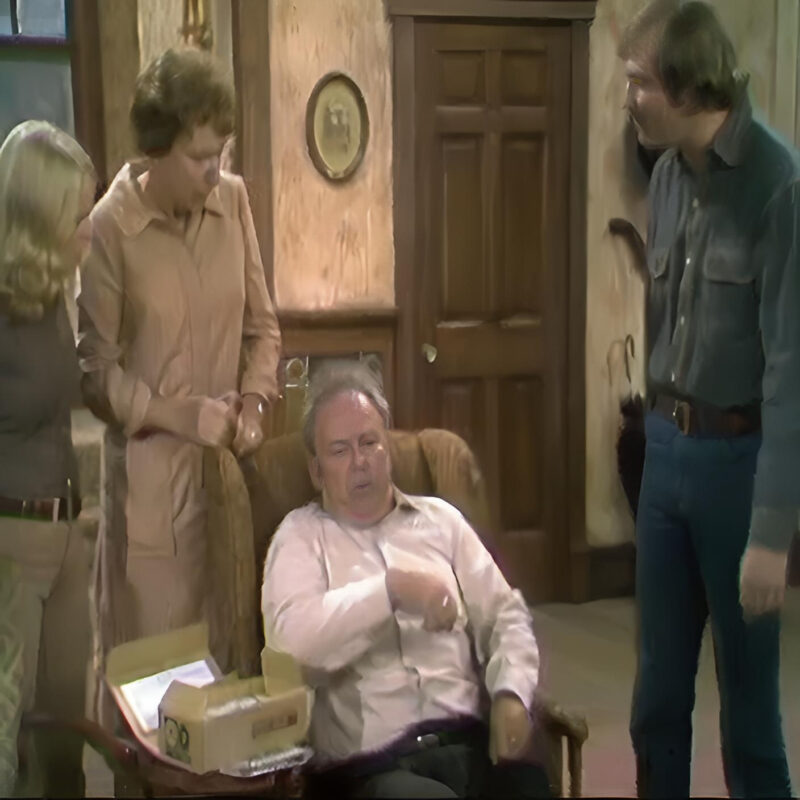
In the 1970s, “All in the Family” introduced America to Edith Bunker, a character who quickly became the nation’s most recognizable housewife. Played by Jean Stapleton, Edith was often seen as the antithesis of women’s liberation, embodying a slow-witted, oppressed “dingbat” living in a working-class neighborhood in Queens. To some, she was a humorous character to be laughed at, while to others, she was a controversial depiction of American womanhood.
Jean Stapleton, the actress behind Edith, had a different perspective. “She is not the typical American housewife,” Stapleton explained in an interview. “At least I hope she’s not.” According to Stapleton, Edith represented a housewife still in bondage to the male figure, restricted to the home, and lacking the education to expand her world. Stapleton hoped most housewives were not like Edith.
Despite this, Stapleton insisted that Edith was not a put-down of women. “I view her as a true and honest reflection of a woman who is part of a family like the Bunkers,” she said. Edith, she believed, had her good points: she was human, honest, compassionate, intuitive, and often spoke the truth that pricked Archie’s inflated ego.
Stapleton herself was a stark contrast to her character. Wearing a fashionable navy pantsuit and speaking in a well-modulated voice far from Edith’s nasal tone, she revealed the thought and collaboration that went into creating Edith’s characteristics. The nasal voice and the “Edith shuffle” were born from Stapleton’s own creativity, inspired in part by a beloved aunt.
The show’s impact was profound. Stapleton noted how one episode on Edith going through menopause resonated with many viewers. “One woman said, ‘My husband watched the show, and now he knows what I’m going through.’”
Stapleton’s off-screen life was equally compelling. Born in New York, she lived with her husband William H. Putch, a producer-director, in a log cabin in Fayetteville, PA. The family also maintained a house in Los Angeles for the show’s taping schedule. Unlike Edith’s subservient role, Stapleton’s husband appreciated her having interests outside the home, even sharing cooking and childcare duties.
Politically, Stapleton leaned liberal, which would undoubtedly infuriate her on-screen husband Archie. She proudly shared that her children had never been exposed to bigotry and even confronted classmates using racial slurs.
Stapleton’s portrayal of Edith was not just a performance; it was a nuanced depiction that highlighted the complexities of American womanhood. Through her talent and insight, she brought to life a character that was both endearing and thought-provoking, making Edith Bunker a lasting figure in television history.
